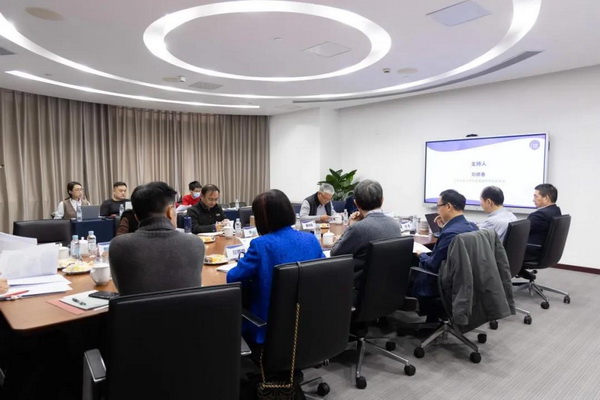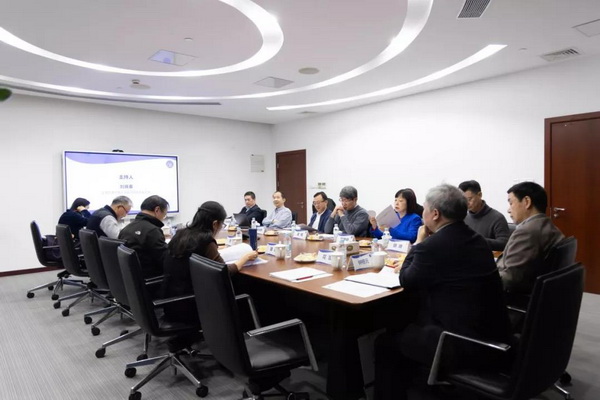A closed seminar on "Changes, Opportunities and Strategies of Post-Epidemic Supply Chain" was held by our SAIF Think Tank recently at SAIF's Xuhui Campus. The seminar was presided over by Professor Xiaochun Liu (Associate Director of CAFR). Other experts in attendance include those from SAIF, the China Academy of Finance Research (CAFR), the Antai School of Economics and Management (ATSE) of SJTU, the China Financial Futures Exchange (CFFEX), and the Shanghai Institute of Futures and Derivatives (SHIFD).

Professor Hong Chen (Professor of Management at SAIF) reported on "Analysis of the Influencing Factors of Carbon Emissions under the Emission Peak Target and Suggestions". Professor Chen analyzed the characteristics of China's carbon emission structure by comparing international carbon emission structures from different economies and their historical evolution. He analyzed the main influencing factors of carbon emissions by establishing macro-factor and industry-factor models and forecasted fossil energy consumption in the next 10 years. He put forward the necessity of maintaining a stable supply of traditional energy sources yet realizing the necessity of their gradual replacement by clean energy sources. Professor Chen also emphasized two points, the first being carbon footprint. We should not only focus on the direct generation of carbon emissions, but also on carbon emissions caused by consumption on the demand side. Secondly, energy storage technology is a troublesome bottleneck for the scale-up of clean energy.
Professor Qigui Zhu (Secretary of the CPC SAIF Committee) reported on "Problems and Suggestions for the Development of China's Chip Industry" from the perspective of turning "crisis" into "opportunity". Professor Zhu discussed the chip industry development condition, both at home and abroad, then compared and analyzed the problems faced by the chip supply chain in China.
He then suggested that we seize this good opportunity to promote industrial optimization and upgrading, and to accelerate the process of an independent and controllable chip industry. Specifically, he put forward five suggestions: (1) Insist on long-term investment; (2) Respect intellectual property rights and strengthen innovation protection; (3) Strengthen talent cultivation and attract to grow a senior engineering team; (4) Implement differentiated support policies and create a favorable industrial development environment; and lastly, (5) Enhance supply chain finance to help coordinate production and marketing.

Professor Genyuan Zhong and Professor Mengdi Gu commented on the two reports, respectively, and gave high recognition to them. In the discussion session, participants shared their views on carbon emissions and the chip industry, and gave suggestions. These included: Feng Li (Professor of Accounting at SAIF, Associate Director of CAFR, Co-Director of SAIFR), Professor Tan Wang (Professor of Finance, Academic Director of the MF Program), Professor Zhan Jiang (Term Professor, Academic Director and Executive Director of the EED Program), Professor Tzukuan Chiu, Mingliang Li (Senior Researcher at CAFR, Senior Legal Expert at CFFEX), Lei Hua (Deputy Dean at SHIFD), Ying Ma (Affiliated Professor at SAIF, Expert at CAFR), and Jie Hu (Professor of Practice at SAIF).






